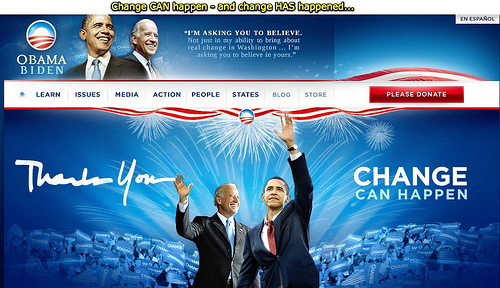This is how it goes.
I read Jenny Luca’s post ‘The future of libraries’ which she wrote after reading John Connell’s post ‘Education and the cloud’. John wrote his post after reading Kevin Marks. Kevin had read something Tim O’Reilly had written. Tim was writing after having read a book by Kim Stanley Robinson. Before spiralling further, I should redivert to the purpose of my own post which is to contribute my own thoughts following from these threads, and specifically following from Jenny’s valuable insights.
We have come a long ways from the time of da Vinci and the time when books were chained to lecterns. But we’ve only scratched the surface of many more changes to come…Throughout history the role of the library was to serve as a storehouse, an archive of manuscripts, art, and important documents. The library was the center of information revered by most because each contained the foundational building blocks of information for all humanity.
There will still be a need for schools and teachers. I don’t think we will become obsolete. I do think the nature of learning will change; we will need to encourage and foster self directed learners and this is what I see the function of teachers will be in the future…… What the point of libraries will be, I think, is as a meeting place for humanity to share ideas. A bit like Ancient Greece where the Sophists would meet up together to share ideas.
Humanity. Both Jenny Luca and Thomas Frey have identified the larger concern as humanity. It’s not about books, computers, buildings or technology but the collective resources of humanity. It’s not about books versus the internet. And as Frey says, ‘books are a technology, and writing is also a technology, and every technology has a limited lifespan.’ People locate, write, store, use and share information. How revolutionary was Johann Gutenberg who unveiled his printing press to the world by printing copies of the Gutenberg Bible in 1455? But, as Frey says, communication systems are continually changing the way people access information:
If you were to construct a trend line beginning with the 1844 invention of the telegraph, you will begin to see the accelerating pace of change: 1876 – telephone, 1877 – phonograph, 1896 – radio, 1935 – fax machine, 1939 – television, 1945 – ENIAC Computer, 1947 – transistor, 1954 – color television, 1961 – laser, 1965 – email, 1973 – cell phone, 1974 – Altair 8800, 1989 – World Wide Web, 1990 – Online Search Engine, 1992 – Web Browser, 1994 – Palm Pilot, 1996 – Google, 1999 – P2P, 2002 – iPod, 2004 – Podcasting.
If we bring back the true meaning of libraries – to share knowledge and ideas, or, more specifically, to enable the human interaction with knowledge and ideas, then we can see that schools and libraries, as centres of learning and interaction, are challenged with a new, global purpose. Frey says:
Libraries themselves are a global system representing an anchor point for new systems and new cultures… The notion of becoming a cultural center is an expansive role for the future library. It will not only serve as an information resource, but much more, with the exact mission and goals evolving and changing over time.
The space where students can form relationships, the space where they can articulate ideas and glean advice and encouragement, the space where the human network forms and where they can find ways to make it grow.



